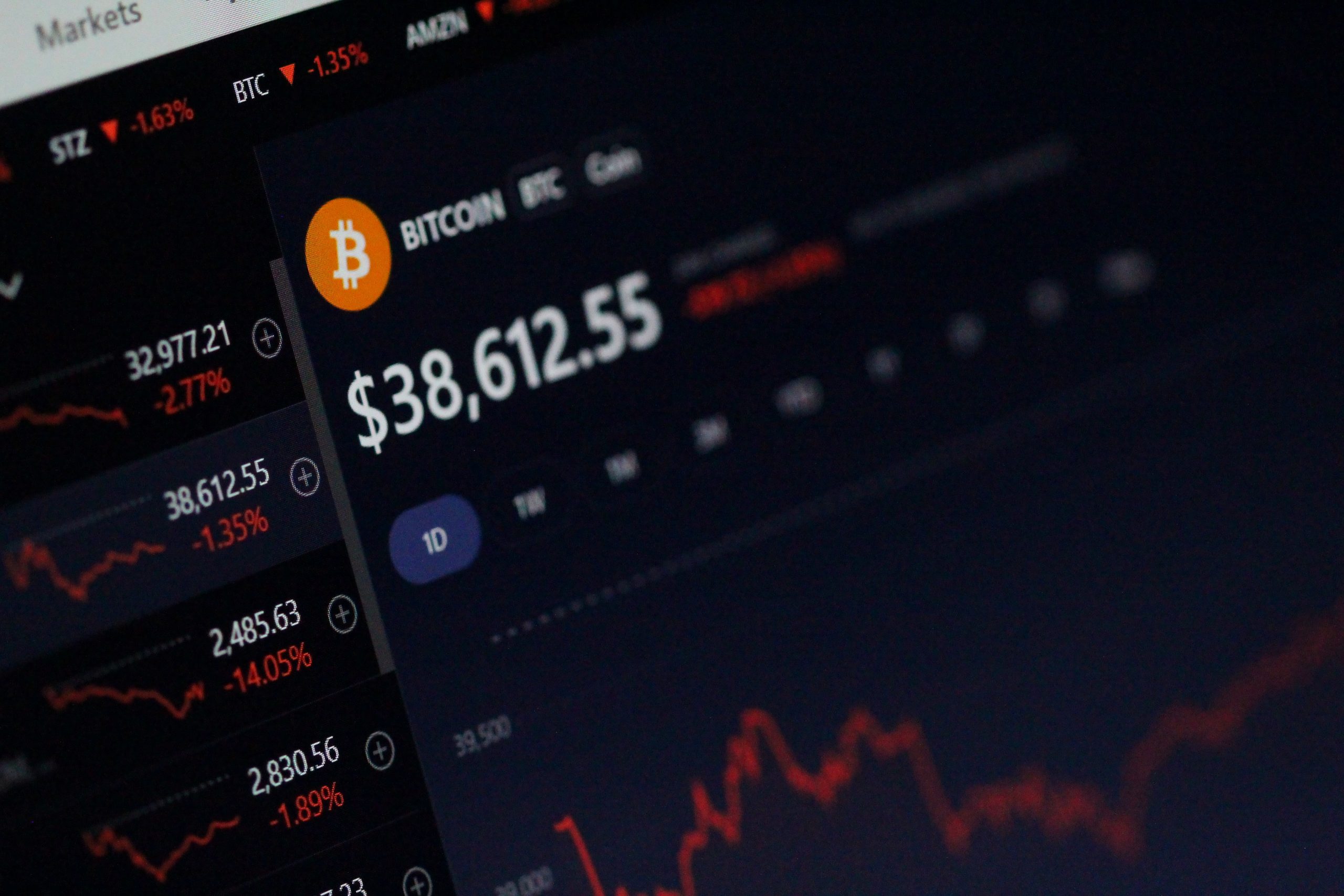With the debut of Bitcoin in 2009, blockchain went from theory to practice, proving that this digital distributed ledger technology works.
Since then, businesses have been experimenting with how they may use blockchain to their advantage.
Big-name enterprises, government agencies, and nonprofit organizations use blockchain to streamline old procedures and enable new business models.
Blockchain has a wide range of uses in financial services, supply networks, and government.
It enables increased security, transparency, and fast traceability beyond bitcoin.
Governments are enacting new legislation to encourage the adoption of blockchain technology in order to enable its applications.
Blockchain transfers data quickly and securely without requiring any institution to bear responsibility for data security or transaction facilitation.
Benefits of Blockchain That Makes It So Useful
Decentralized structure
When there is no central player to facilitate trust, blockchain displays its worth.
Blockchain facilitates data exchange within a corporate ecosystem where no single entity is solely responsible.
It also facilitates confidence when players are unfamiliar with one another.
Supply chain management is a good example.
Multiple organizations, from suppliers and transportation companies to producers, distributors, and retailers, require information from others in the chain.
However, no one is in charge of making it happen.
The decentralised structure of blockchain overcomes this problem.

Read: Fintech Innovations in Blockchain: Shaping the Future of Finance
Speed
Blockchain can handle transactions substantially faster than traditional techniques since it eliminates intermediaries and replaces remaining human processes in transactions.
In some situations, a transaction can be completed in seconds or less.
However, the speed of these systems to process transactions depends on factors like block size and network traffic.
Nonetheless, experts have decided that in terms of speed, blockchain often outperforms traditional processes and technology.
Walmart used it to trace the origins of sliced mangoes in seconds, a procedure that had previously taken seven days.
Trust
Where trust is either non-existent or unproven, blockchain generates trust amongst multiple entities.
As a result, these businesses engage in transactions or data sharing they might have avoided or required an intermediary for.
One of the most frequently mentioned advantages of blockchain is the ability to enable trust.
Early use cases showed blockchain’s worth by facilitating transactions between entities without direct contacts but needing to share data or make payments.
Bitcoin and cryptocurrencies exemplify how the technology enables trust between individuals who don’t know each other.
Read: Blockchain Technology: What Investors Need to Know?
Immutability
Immutability basically means that transactions can’t be modified or deleted after they’ve been recorded.
All transactions on the blockchain are timestamped and datestamped, resulting in a permanent record.
It tracks data over time, ensuring a safe and reliable audit.
This contrasts with paper-based filing, prone to errors, and legacy computer systems, which can be corrupted or decommissioned.
Omar cited Sweden’s use of blockchain to digitize real estate transactions, maintaining track of property titles as they change hands.
Reduced costs
The nature of blockchain can also help businesses save money.
It improves transaction processing efficiency.
It also simplifies reporting and auditing operations by reducing manual duties such as data aggregation and amendment.
Financial institutions save money when they use blockchain.
Put Your Tech Company on the Map!
Get featured on Nicholas Idoko’s Blog for just $50. Showcase your business, boost credibility, and reach a growing audience eager for tech solutions.
Publish NowAccording to experts, since its capacity to speed clearing and settlement translates directly into process cost savings.
Blockchain helps organisations save money by removing the middlemen.
These are vendors and third-party providers who traditionally handled the work that blockchain can now do.
Visibility and traceability
Walmart’s use of blockchain isn’t just about speed; it tracks food items and other products back to their source.
This helps Walmart manage inventories, respond to issues, and validate product histories.
If a farm recalls its product due to contamination, a retailer can identify and remove the produce from that farm.
And then the yleave the rest for sale.
Experts say blockchain can track the origins of commodities like pharmaceuticals.
This ensures they’re genuine and organic products to confirm they’re truly organic.
Read: All You Need To Know About Cryptocurrency

Blockchain’s Real World Use Cases Other Than Cryptocurrency
Real estate
To verify financial information and ownership, as well as transfer deeds and titles to new owners, real estate transactions necessitate a large amount of paperwork.
Using blockchain technology to record real estate transactions can make ownership verification and transfer more safe and accessible.
This can help you save time and money by speeding up transactions and reducing paperwork.
Voting
If personal identifying data is stored on a blockchain, we are only a step away from being able to vote using blockchain technology.
Nobody can vote twice, only eligible voters can vote, and votes cannot be tampered with if blockchain technology is used.
Furthermore, it has the potential to broaden voter participation by making it as simple as pushing a few buttons on a smartphone.
Simultaneously, the cost of holding an election would be significantly reduced.
Securely share medical information
Doctors and medical workers can receive reliable and up-to-date information about their patients by storing medical records on a blockchain.
This can help to guarantee that patients who see many providers receive the best possible care.
It can also speed up the retrieval of medical documents, allowing for faster treatment in some circumstances.
Doctors may simply verify whether a patient is insured and whether their therapy is reimbursed if insurance information is stored in the database.
Non-fungible tokens (NFTs)
NFTs, or non-fungible tokens, are widely conceived of as a mechanism to own digital art rights.
Because the blockchain prevents data from being duplicated, placing an NFT on it ensures that only one copy of a work of digital art exists.
This might make you feel like you’re buying tangible art, but without the hassles of storage and upkeep.
NFTs can be used for a variety of things, but at their core, they’re a mechanism to transfer ownership of anything that can be represented by data.
It could be a house deed, broadcast rights to a video, or a ticket to an event.
An NFT could be anything that is a little out of the ordinary.
Gambling
The gambling industry may use blockchain to help players in a variety of ways.
The transparency that operating a casino on the blockchain delivers to potential gamblers is one of the main advantages.
Bettors can see that the games are fair and that the casino pays out because every transaction is logged on the blockchain.
Furthermore, no personal information, like as a bank account, is required, which may be a barrier for some would-be gamblers.
Because users can wager anonymously and the decentralised network is not susceptible to government shutdown, it provides a workaround for regulatory constraints.
Read: Blockchain Solutions: Revolutionizing Supply Chain Management
Logistics and supply chain tracking
There are various advantages to using blockchain technology to track products as they transit through a logistics or supply chain network.
First and foremost, because data is stored on a secure public ledger, it facilitates communication between partners.
Put Your Tech Company on the Map!
Get featured on Nicholas Idoko’s Blog for just $50. Showcase your business, boost credibility, and reach a growing audience eager for tech solutions.
Publish NowSecond, because the data on the blockchain cannot be changed, it provides higher security and data integrity.
As a result, logistics and supply chain partners may collaborate more freely, knowing that the data they’re given is reliable and current.
Conclusion
Blockchain has proven to be very useful when applied innovatively across several fields.
As the technology is still relatively new with more applications rolling out every time, its future looks pretty bright.
The applications of blockchain are expected to rise as time goes on and with the introduction of Web 3.0, NFTs and the metaverse.
Before You Go…
Hey, thank you for reading this blog post to the end. I hope it was helpful. Let me tell you a little bit about Nicholas Idoko Technologies.
We help businesses and companies build an online presence by developing web, mobile, desktop, and blockchain applications.
We also help aspiring software developers and programmers learn the skills they need to have a successful career.
Take your first step to becoming a programming expert by joining our Learn To Code academy today!Be sure to contact us if you need more information or have any questions! We are readily available.
[E-Books for Sale]
1,500 AI Applications for Next-Level Growth: Unleash the Potential for Wealth and Innovation
$5.38 • 1,500 AI Applications • 228 pages
Are you ready to tap into the power of Artificial Intelligence without the tech jargon and endless guesswork? This definitive e-book unlocks 1,500 real-world AI strategies that can help you.
See All 1,500 AI Applications of this E-Book
750 Lucrative Business Ideas: Your Ultimate Guide to Thriving in the U.S. Market
$49 • 750 Business Ideas • 109 pages
Unlock 750 profitable business ideas to transform your future. Discover the ultimate guide for aspiring entrepreneurs today!
See All 750 Business Ideas of this E-Book
500 Cutting-Edge Tech Startup Ideas for 2024 & 2025: Innovate, Create, Dominate
$19.99 • 500 Tech Startup Ideas • 62 pages
You will get inspired with 500 innovative tech startup ideas for 2024 and 2025, complete with concise descriptions to help you kickstart your entrepreneurial journey in AI, Blockchain, IoT, Fintech, and AR/VR.
We Design & Develop Websites, Android & iOS Apps
Looking to transform your digital presence? We specialize in creating stunning websites and powerful mobile apps for Android and iOS. Let us bring your vision to life with innovative, tailored solutions!
Get Started Today



